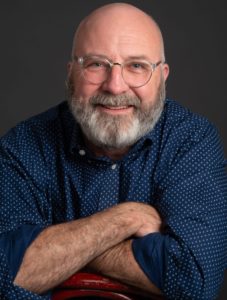It doesn’t surprise me that new research shows white mainline Protestant clergy are more supportive of LGBTQ rights, abortion rights and racial justice than their congregations.
I’ve been there, done that and have the scars to prove it.
From my perspective, the vast majority of seminary-educated clergy in American Protestant churches hold more inclusive attitudes than some or most of the people in their pews. That’s not just because they’ve been to seminary; it’s because they’re the ones living with the real-life pain of people they counsel every week. They’ve had to wrestle with these deep questions more than most any layperson.

Mark Wingfield
It is easier to believe in theological absolutes when you don’t have to deal directly with people in the gray areas of real life.
New research from Public Religion Research Institute documents what many of us clergy have known by experience. As reported by Russell Contreras at Axios:
- Nine in 10 clergy among all Mainline Protestant denominations (90%) favor laws protecting LGBTQ people against discrimination compared to 77% of Mainline Protestant churchgoers.
- Only 12% of Mainline clergy agree with the statement, “God intended America to be a new promised land where European Christians could create a society that could be an example to the rest of the world.” About 37% of white Mainline congregants agree with that statement.
- Nearly three-fourths of clergy (73%) say they oppose the U.S. Supreme Court’s rejection of abortion rights under Roe v. Wade. … Meanwhile, two-thirds of white Mainline Protestant churchgoers (67%) said they opposed reversing Roe.
This gap between clergy belief and lay expectations came into clearer focus for me seven years ago when I was associate pastor of our Dallas church and was working with our Inclusion and Diversity Study Group — a name that would surely get us banned in the state of Texas today — in trying to figure out a position on LGBTQ inclusion.
“There came a moment late in our study group’s work when I was asked a question I knew might require a surprising answer.”
There came a moment late in our study group’s work when I was asked a question I knew might require a surprising answer. The question was how many of our ministerial staff members (14 at the time) we would lose if the church voted to be fully inclusive of the LGBTQ community.
My answer: None.
Then I explained that we as a staff had discussed this from the beginning, with our senior pastor plainly telling staff this conversation could lead to staff layoffs and budget reductions. And to a person, our staff members said, “Have the conversation anyway.” Some of us had come to a more inclusive position recently, and others had held a more inclusive view as long as they could remember. It turned out we all had arrived at the same destination but via different routes and schedules.
This was understandably shocking news to the traditionalists on the study group. “Do you mean there’s not a single minister on our staff who holds my view?” one member asked.
“Yes,” I replied, adding that we had not gone out and systematically hired all affirming clergy; in reality, most of our staff were so long-tenured and were hired so long ago that such questions wouldn’t have been asked. Again, we all got to the same destination via different routes.
Why is this so? The starting point is to realize that most educated clergy have spent more time studying and thinking about Scripture and sexuality than the typical layperson. If nothing else, that study and a life experience in ministry will lead most clergy to acknowledge they have more questions than answers. Well-trained clergy also know the dangers of stretching biblical interpretation and certainty too far.
“Educated clergy often are treated with suspicion on such matters, as though education has ruined them.”
Nevertheless, educated clergy often are treated with suspicion on such matters, as though education has ruined them. This is perhaps unique to matters religious, where education may be seen as a threat rather than a help.
Compare the work of clergy to the work of medical doctors. Let’s say you have a brain tumor and you go to visit your doctor for evaluation and treatment. Would you be reassured if your doctor said, “I know there are new treatments and schools of thought on this, but I prefer to rely on what I first learned in medical school in 1954”?
You would be horrified. And yet when it comes to clergy, parishioners often want their pastors not to have been influenced by recent scholarship or commentary that sheds new light on Scripture. Such new information is inherently viewed as liberal or suspect. But why should we want our doctors to be better educated than our clergy?
Even when clergy have studied and are willing to admit changing their views on issues like same-sex attraction, their voices are discounted.
Imagine again you’re seeing a doctor to treat a brain tumor. You take a friend with you to the appointment. After the doctor explains the current best treatment plan, based upon her extensive medical education and experience, your friend chimes in: “Well, I’ve read on the Internet about an old-fashioned treatment that doesn’t require the pain of surgery or the risk of infection. You should follow this plan instead.” Would you listen to the doctor or to the friend?
In churches across America, Christians pondering theological issues time after time choose the Internet-educated friend over the seminary-educated pastor because the friend’s counsel is less threatening and requires less adaptation.
This is not to say that all well-educated clergy will come down on the side of full LGBTQ inclusion in the church. Remember, Christians of good faith may interpret the Scriptures differently on this issue — and they do.
What I can say with certainty is that there are far more pastors in America today who at least have doubts about the traditional interpretation of the so-called “clobber verses” against same-sex relations than are able to stand in the pulpit and admit those doubts.
“This dissonance runs all the way through key points of biblical interpretation, including how literally to read especially Old Testament texts.”
Sexuality and gender questions are the most obvious examples of this clergy-congregant gap, but they are not the only ones. This dissonance runs all the way through key points of biblical interpretation, including how literally to read especially Old Testament texts.
A decade ago, United Methodist pastor Adam Hamilton acknowledged this dichotomy in his book Making Sense of the Bible. What he attempted to do is lay out some of the key things a seminary education teaches pastors but those same pastors may not be able to acknowledge in their congregations without serious backlash.
This kind of lowest-common-denominator preaching and teaching is not good for the health of the church. And it’s likely why so many churches are having trouble today confronting the obvious lies of Christian nationalism and Trumpism. There is no basis, no experience, in discussing hard topics and declaring inconvenient truth.
My longtime colleague George Mason used to say of his preaching: “My goal is to preach above your head rather than below your head.” He sees the role of the pastor as challenging churchgoers to think more deeply rather than to be comforted in their beliefs.
That’s appreciated by many but not all. Back in those days, we had a young family leave the church because of George’s preaching — a family deeply invested in all aspects of the church and with many friendships. The husband/father in the family came to George to explain why they were leaving: “Your sermons make me think too much. I have to think every day at work, and when I come to church, I don’t want to have to think.”
So no, I’m not surprised at PRRI’s findings. The gap is real.
Note: A portion of this column is adapted from the author’s 2020 book Why Churches Need to Talk About Sexuality.
Mark Wingfield serves as executive director and publisher of Baptist News Global. He is the author of the 2023 book Honestly: Telling the Truth About the Bible and Ourselves.


